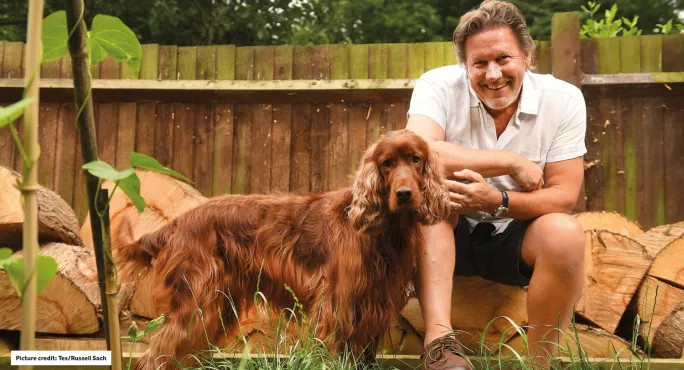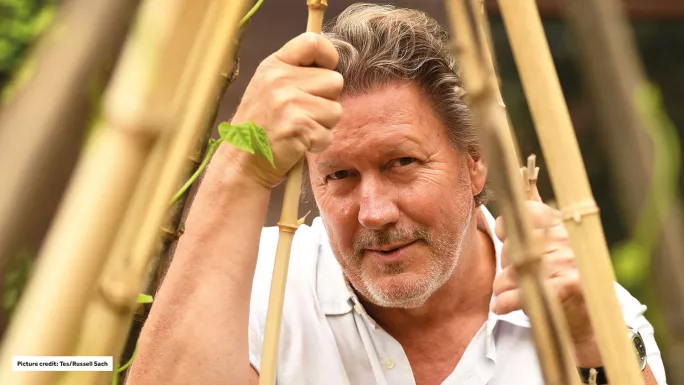
- Home
- Tes talks to...Ian Warwick
Tes talks to...Ian Warwick

When asked to explain why he believes the education system has consistently failed able students, Ian Warwick answers not with his own words, but those of German writer and statesman Johann Wolfgang von Goethe.
“If you treat people as they are, you will be instrumental in keeping them as they are. If you treat them as they could be, you will help them become what they ought to be,” he recites.
Whether you agree with that statement and its application in schools or not, you may ask who Warwick is to suggest teachers are not pushing students hard enough. Well, he is one of you - or, at least, he used to be.
Warwick taught for 20 years in comprehensive schools before, in 2003, setting up and becoming a senior director of London Gifted and Talented, part of the London Challenge initiative that tackled under-performance in the capital’s schools. Since then, the organisation has worked with thousands of schools and teachers nationally to improve the teaching of able children, and he’s also written extensively on the topic in books, journals and magazines.
Yes, he’s an education consultant, but one who has spent a significant proportion of his life at the chalkface. His perspective on how we teach gifted children, in particular, is a rare one: he has seen what goes on in schools first-hand - being part of the teaching process - but he has also been able to step out of that and research the issue further away from the pressures of the classroom.
Goethe’s quote sums up his feelings, but he expands on the point with words of his own. “Understandably, given the UK national obsession with grade boundaries, levels and league tables, we have perhaps inadvertently installed a ‘glass ceiling’ over learning,” Warwick explains. “We teach to the tests and worry that not all students are working at the level we require, rather than focusing enough on the very top-end students and the excitement and immersion that convinces students to want to study our subject further.”
He recalls an experience that illustrates the consequences of the current gaps.
“Near the end of a recent interview with a very smart student about her experiences in a genuinely outstanding UK school, she used the phrase ‘all hat and no rabbit’,” he recalls. “I asked her what she meant by this and she said that she had been looking forward to secondary education as she thought that she would have a chance to question experts and to see the bigger picture, but instead the ‘celebration of dullness’ she had experienced at primary school continued. Astonishingly, students like this don’t usually complain. They have accepted far too readily that, for them, boredom is the norm.”
Warwick believes that the situation is not necessarily the teachers’ fault; rather it is down to a general educational culture that seeks to avoid classing children as exceptionally able. “The UK does seem to have developed its own particular squeamishness about recognising and developing high-ability students,” he explains, recounting a recurring need during training sessions to deal with some of the misconceptions and “baggage” that people sometimes have about a gifted and talented focus.
Does that baggage not have any credibility, though? The national Young Gifted and Talented Programme was scrapped by Michael Gove in 2010 and the idea, in general, of pinpointing the most able has consistently come under criticism. One of the most common arguments is that resources should be focused on getting all children to a good level of education, particularly closing the gap between disadvantaged students and their peers. And another accusation is that gifted and talented programmes inevitably just help to give middle-class kids with pushy parents an extra leg up they don’t need.
Warwick addresses these points head on. “The main argument against the more-able agenda often takes a slightly political stance,” he says. “We are told that resources should be focused on the genuinely needy and we assume that our more-able students are [Harry Potter heroine] Hermione Granger duplicates from middle-class supportive families who will succeed with or without our help. We assume they can’t fail, but the truth is they do fail. And, frankly, on an industrial scale.”
The great underachievers
Warwick says that the young people he is talking about are often far from being Hermione Granger clones, too.
“Sometimes, the very children who need some of the greatest support are precisely the able students who are most likely to underachieve,” he says. “They are the kids who don’t get to go to the cultural events, don’t get to hear the right words spoken at home, don’t have parents helicoptering in when they start to slip. In short, they are the very students we need to support the most in school, or their talent will be squandered, their aspirations abandoned.”
Warwick argues that it’s crucial we come to recognise the gifted and talented debate as part of a broader equality agenda.
So what can schools do to ensure that the skills and aptitudes of their most able students - from all backgrounds - are properly nurtured?
“We need to talk explicitly about subject mastery and not gloss over the big issues and complex concepts in our subject - that includes not dumbing down our language,” Warwick argues. “But it’s also about explaining clearly to our students the need to grapple with challenges and the struggle to attain. If parents (and sometimes schools) are anxious to ensure a perfectly paved road to success, we can undermine the whole point of learners as experts in development.”

We also need to reframe how we see - and manage - gifted and talented programmes in schools, he argues.
“The more-able agenda is actually best framed as a ‘low-threshold, high-challenge’ initiative for all students,” he says.
“Colleagues will be far more prepared to engage with it as part of their wider teaching and learning ambitions, and setting up both policy and provision for these students is a great lens to look through for all of our pupils. It’s a way of really looking closely to see if your school is actually differentiating effectively.”
As you might expect from that comment, Warwick is no great advocate for a traditionally rigid “register” approach, in which children are identified and added to an increasingly unwieldy list.
“Keeping more-able policies simple and sustainable helps to get everyone on board. It makes it part of a school’s overall vision, rather than yet more to deal with. Of course, you need a clear definition of what more able means in the context of any specific school, but one with a flexible and inclusive revolving door approach to identification - rather than endless squabbles over who should or should not be on the register, which is genuinely pointless. And a pain.”
Going off piste
Finally, Warwick is keen to remind teachers that their own passion for their subjects is crucial. “Teacher expertise is quite simply the key. Off-piste lessons that go beyond the syllabus requirements inevitably create a sense that there is so much more to learn, which is vitally important for igniting our students’ passion for learning,” he says.
“Ultimately, we need more intellectual heft in the profession, based on the simple principle that no one can teach what they don’t know. Highly educated teachers tend to choose material that is more rigorous and challenging and are less threatened by student questioning.”
He adds that by encouraging bravery, by taking risks yourself in the classroom and by talking about your own less-than-perfect learning journey to expertise, you show students that you understand and support them. And by interrogating and challenging their responses you make it clear that the teacher should not be the only thinker and questioner in the classroom.
Reflecting back on that sadly all-tootypical student, with her “all hat no rabbit” experiences, Warwick imagines how different it might be…
“Of course, all students need an understanding of the ‘hats’ agenda: engaging with a tedious curriculum, experiencing bite-sized epiphanies, practising exam questions, understanding grade boundaries…But surely they also need the occasional ‘rabbit’? A reading culture that goes beyond the expedient, tangential questioning; a focus on complexity and scholarship; even a sense of joy and passion.”
Kate Townshend is a teacher in Gloucestershire. She tweets @_KateTownshend
Register with Tes and you can read five free articles every month, plus you'll have access to our range of award-winning newsletters.
Keep reading for just £4.90 per month
You've reached your limit of free articles this month. Subscribe for £4.90 per month for three months and get:
- Unlimited access to all Tes magazine content
- Exclusive subscriber-only stories
- Award-winning email newsletters
You've reached your limit of free articles this month. Subscribe for £4.90 per month for three months and get:
- Unlimited access to all Tes magazine content
- Exclusive subscriber-only stories
- Award-winning email newsletters



